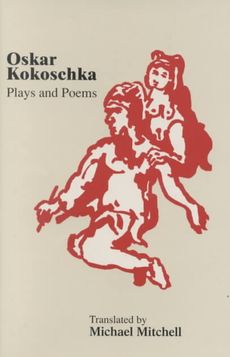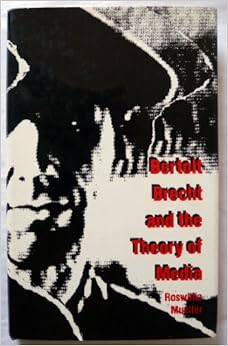Oskar Kokoschka: Plays and Poems (1973/2001)
Filed under book | Tags: · drama, expressionism, poetry, theatre

The well-known painter, Oskar Kokoschka, also produced a considerable and significant body of literary work: plays, a few poems, essays and autobiographical stories. The present volume contains all his plays (some in more than one version) and the poems, plus one short prose passage.
All the pieces in this collection, apart from the play Comenius, were written in the period 1907-1918. The plays, despite Kokoschka’s dislike of the term, reflect the style of Expressionism current in Germany during the period. Indeed, the early ones anticipated and, to as certain extent, helped to define Expressionism. The titles of some – Job, The Burning Bush, Orpheus and Eurydice – reflect the use of the mythic mode. Comenius, which was started in the 1930s and only completed in 1972, is a large-scale historical panorama, focusing on the figure of the Czech humanist and educational reformer, Jan Amos Komenský. Comenius’ fate reflects Kokoschka’s own experience of an increasingly dark world of conflict and oppression. His ideal of a humanity guided by the light of reason cannot find realization amid the strife and carnage of the Thirty Years’ War; at the end of the play it is reduced to a tiny spot of light in Rembrandt’s picture The Night Watch. The Burning Bush, Orpheus and Eurydice and Comenius appear in English translation for the first time.
Originally published as Das schriftliche Werk, Hans Christians, Vienna, 1973-76
Translated by Michael Mitchell
Afterword by Karl Leydecker
Publisher Ariadne Press, Riverside, California, 2001
Studies in Austrian Literature, Culture, and Thought Translation series
ISBN 1572410418, 9781572410411
250 pages
PDF (no OCR)
Comment (0)Roswitha Mueller: Bertolt Brecht and the Theory of Media (1989)
Filed under book | Tags: · aesthetics, cinema, film, film theory, media, media theory, opera, politics, radio, theatre

Bertolt Brecht spent a career puncturing artistic illusion while casting a spell as an innovator that has continued since his death in 1956. Best known to theater goers for “The Threepenny Opera,” “Mother Courage and her Children,” “The Caucasian Chalk Circle” and other production, the great playwright was, in fact, a man of all media. He was interested in radio and the cinema as soon as they appeared in Europe and brought to them, as well as to the stage, a dramatic theory so radical and influential that it has come to be known by the adjective “Brechtian.”
Publisher University of Nebraska Press, Lincoln & London, 1989
Modern German Culture and Literature series
ISBN 0803231326, 9780803231320
149 pages
Reviews: Katie Trumpener, Susan Bennett (Theatre Research International).
PDF (no OCR)
Comment (0)Owen Hatherley: Militant Modernism (2009)
Filed under book | Tags: · aesthetics, architecture, avant-garde, constructivism, design, film, modernism, theatre, vorticism
![]()
“This book is a defence of Modernism against its defenders. In readings of modern design, film, pop and especially architecture, it attempts to reclaim a revolutionary modernism against its absorption into the heritage industry and the aesthetics of the luxury flat. Militant Modernism features new readings of some familiar names – Bertolt Brecht, Le Corbusier – but more on the lesser known, quotidian modernists of the 20th century. The chapters range from a study of industrial and brutalist aesthetics in Britain, Russian Constructivism in architecture, the Sexpol of Wilhelm Reich in film and design, and the alienation effects of Brecht and Hanns Eisler on record and on screen – all arguing for a Modernism of everyday life, immersed in questions of socialism, sexual politics and technology.”
Publisher Zero Books, 2009
ISBN 1846941768, 9781846941764
146 pages
Reviews: Will Self (London Review of Books, 2012), PD Smith (The Guardian, 2009), Jonathan Meades (New Statesman, 2009), Dan Hicks (Planning Perspectives, 2009), Kat Koh (2011).
Interview (Andrew Stevens, 3:AM Magazine, 2009)
Comment (0)
